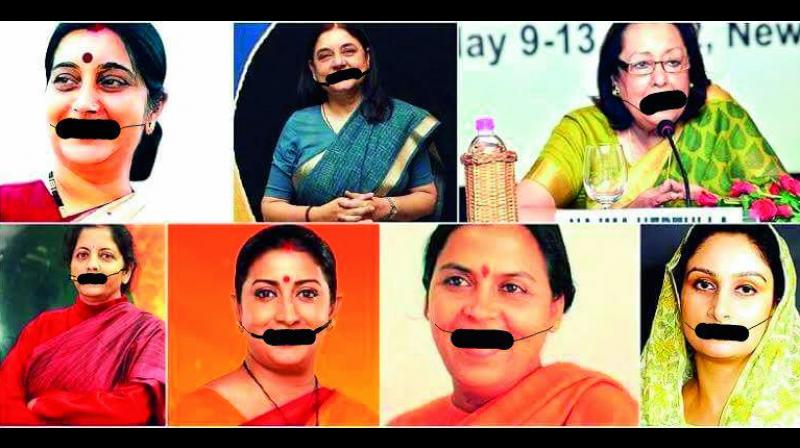Mum’s the word
Image consultant Chaya Momaya however feels that most shy away from commenting because they are unaware of the stance they should take.

It’s been a few days since the war of open letters reopened some old wounds. When filmmaker Aparna Sen, along with 48 signatories wrote an open letter to the PM Narendra Modi about their concern on ‘religious identity-based hate crimes’ last week, a new open letter by actress Kangana Ranaut and 60 signatories, deemed the first one as ‘selective outrage’.
Now, when shocking news from the infamous Unnao region in Uttar Pradesh has gripped the country — where the rape survivor, who had accused the BJP MLA Kuldeep Sengar of raping her, was fatally injured in a car accident, killing her relatives — there’s not a word from the members of the ruling party. While the chilling details are yet unfolding, a debate on social media turned the tables against BJP supporters and party members. “Why the silence from this brigade” they ask.
A short while back, when Samajwadi Party MP Azam Khan made a sexist remark against the BJP MP Rama Devi, Textiles and Finance Minister Smriti Irani and Nirmala Sitharaman vehemently lashed out against him. However, there appears to be nearly no outrage against the recent development in the Unnao case.
“I find it shocking that when their own MLA, a member of the political class is accused of rape, killing the victim’s father and planting a pistol on him, they are silent. This is selective outrage,” says Sushmita Dev, former MP, who was protesting in Lucknow at the time.
Moreover, she calls this lack of outrage by the ruling party supporters as a facet of cult politics. “I am shocked that people who spoke for Modi from the film, art and culture world are so blind that they don’t see the victim who is lying in the ICU on a ventilator. They are all victims of cult politics,” she says.
Social thinker Shiv Visvanathan points out at the gravity of ignorance. “It’s not selective outrage, its misplaced pomposity of the highest order. If something is wrong, it’s wrong. In that sense, the step that some of the elite have taken shows their congeniality with the current regime in power than the criticality of the events today,” he says.
Filmmaker Vivek Agnihotri, who was one of the signatories, believes that open letters are political tools and that it was important for both sides to get a chance to tell their story. “All these people who had written the letter initially knew only one side of the story and it was important that someone presented the other side too. And that’s exactly what I did, and that’s why I got everybody involved,” he says, even as he vehemently denies taking part in selective outrage.
“Everybody I know has been talking about the Unnao rape case, even I tweeted something about it in the morning. Very often, in these kinds of cases, the outrage builds up and later you realise that the news was wrong, and it was something else. That’s why people don’t want to dip their fingers into something they are not sure about,” he explains, adding, “I’m not into selective outrage. I have a very clear-cut political agenda and everybody knows about it.”
Image consultant Chaya Momaya however feels that most shy away from commenting because they are unaware of the stance they should take. “A social issue is easy to comment on rather than something concerned with the government. We are not legally aware of what is right and what is wrong, and exact details of what's happening. You have to be completely aware of the subject before you make a comment. There are a lot of legalities, working systems, and many hands involved in one situation,” she explains.

